Cricketer-turned-politician Imran Khan is on the verge of victory after millions of Pakistanis voted on Wednesday to elect a new government. In his first address to Pakistan after getting massive lead, Imran Khan talked of several key issues facing the nation including poverty and health issues. He also referred to the relations with China and India saying the country could follow China's example in many ways. He also said he was keen to fix ties with India.
The tense general election in Pakistan was marred by allegations of military interference and a series of deadly attacks. Up to 8 lakh police and military forces were stationed at more than 85,000 polling stations across the country as the voting took place. Wednesday's election was only the second democratic transition of power in Pakistan's 70-year coup-studded history. Pakistan is a country of approximately 207 million people, out of which the number of registered voters are about 106 million.
More than 3,000 candidates are contesting for 272 general seats of the National Assembly, while some 8,000 candidates ran for 577 general seats of the four provincial assemblies - Punjab, Sindh, Khyber-Pakhtunkhwa, and Pak-occupied Balochistan. The three key parties contesting were former prime minister Nawaz Sharif's Pakistan Muslim League (Nawaz) or PML-N, cricketer-turned-politician Imran Khan's Pakistan Tehreek-e-Insaf or PTI, and former (late) prime minister Benazir Bhutto's party Pakistan Peoples Party, which is being headed by her son Bilawal Bhutto Zardari. The contest is said to be a close one between Nawaz Sharif's party and Imran Khan's party. The counting of votes began soon after polling was concluded and results are expected to be announced within 24 hours. The Election Commission has blamed delays in the results on technical failures and promised to investigate complaints.
Here are the LIVE updates of the Pakistan General Election Result 2018:
#WATCH: PTI chief Imran Khan addresses the media in Islamabad. #PakistanElections2018 https://t.co/6Qb8AlhzZt
- ANI (@ANI) July 26, 2018
"400 petitions on rigging were filed after previous polls. I had vouched for the issue to be addressed for clean polls this time. We would assist and help investigate claims of rigging": Imran Khan
Cricketer-turned-politician Imran Khan also referred to India-Pak ties as he addressed Pakistan. Here are highlights
- "I really want to fix the India-Pakistan ties through dialogue"
- "The main issue between us is Kashmir but blame game can't continue forever"
- "Because of cricket, I want better ties with the neighbour country"
- "If India moves one step forward, we will move two"
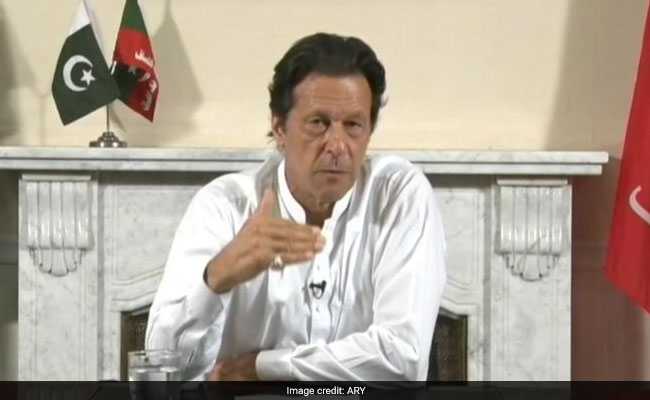
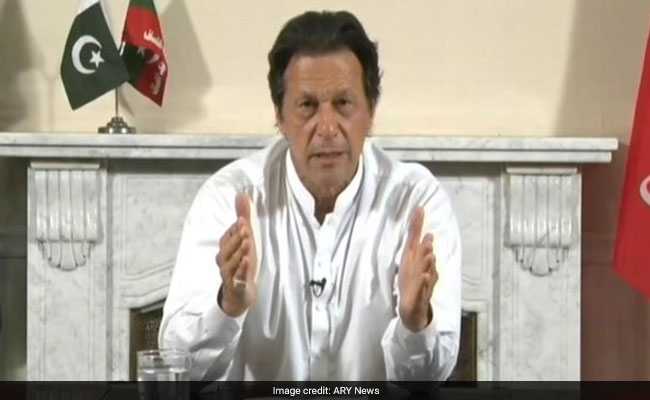
"I want to thank all those people who braved the heat and all kinds of difficulties to strengthen our democracy," says Imran Khan as he addresses Pakistan. Here are highlights of his first speech after he secured massive lead in the general election.
- "I have seen Pakistan's rise and fall, its collapse"
- "I thank Allah for the struggle of 22 years has brought to me this place and given me a chance to make Pakistan that I dreamt of"
- "Allah had given me everything that I could have even done alright had I not entered politics"
"Yahaan Ka mausam badalnay wala hai, Yahaan koi aanay wala hai. Imran Khan to address the nation shortly"! #PrimeMinisterImranKhan pic.twitter.com/GUoPscTcTu
- PTI (@PTIofficial) July 26, 2018
That awkward moment where polling ended 17 hours ago but still no results released for any of the areas @BBhuttoZardari is standing from... #Elections2018 #Pakistan
- Bakhtawar B-Zardari (@BakhtawarBZ) July 26, 2018
A supporter of Pakistan Muslim League-Nawaz (PML-N) waves a party flag as he celebrates during the general election in Rawalpindi (Reuters)
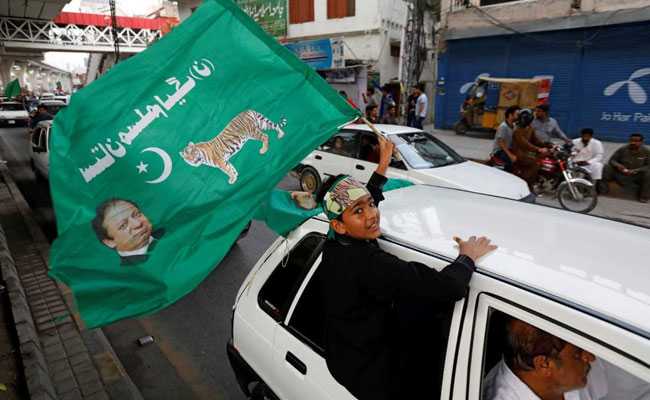
ECP should give strict instructions for issuance of the Form 45. It completely failed in its main responsibility of holding a free, fair & transparent elections. A serious blow has been dealt to the democratic process of the country.
- Shehbaz Sharif (@CMShehbaz) July 25, 2018
#PakistanElections2018 As per the rules, Election Commission of Pakistan officials are bound to provide results on Form 45, instead results were handed out on plain paper in Khi & Hyderabad. pic.twitter.com/cANGPAeUzU
- ANI (@ANI) July 26, 2018
Election Commission official Babar Yaqoob promised that all formal complaints would be investigated.
"If there are certain polling stations where they have any complaints, we should be approached. We will take action," Mr Yaqoob said.
But he said he had no knowledge of widespread problems.
"We're getting complaints that on some polling stations where certain parties are losing, their polling agents are leaving without taking the verified results," he said.
Imran Khan has staunchly denied allegations by PML-N that he is getting help from the military, which has ruled Pakistan for about half of its history and still sets key security and foreign policy in the nuclear-armed nation. The army has also dismissed allegations of meddling in the election.
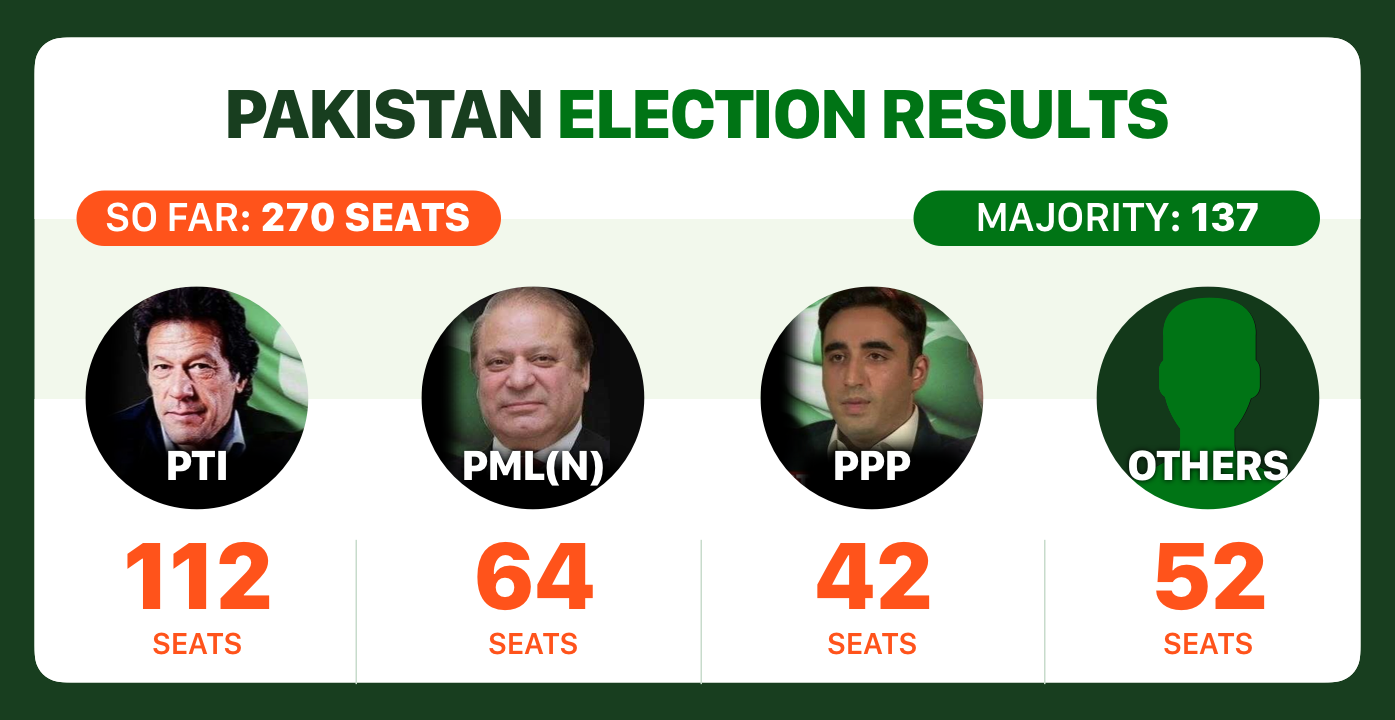
Facing questions about the delay in posting official results, Pakistan Election Commission says 'result transmission service' has stopped, causing the delay.
"Result transmission service stopped working under pressure and has delayed results. Presiding officers have been asked to meet their returning officers, along with army officers assigned to their voting booths, with the results," Babar Yaqoob, ECP Secretary, was quoted as saying by news agency ANI.
ECP's Form 45 on left
- omar r quraishi (@omar_quraishi) July 25, 2018
ECP's Form 45 in Naya Pakistan on right pic.twitter.com/mba6LaQcN6
The third major party, the Pakistan Peoples Party, also complained that its polling agents were asked to leave during the vote count in a number of voting centres.
"This is the warning bell of a serious threat," said PPP senator Sherry Rehman. "This whole election could be null and void, and we don't want this."
Several smaller parties made similar complaints in public statements.
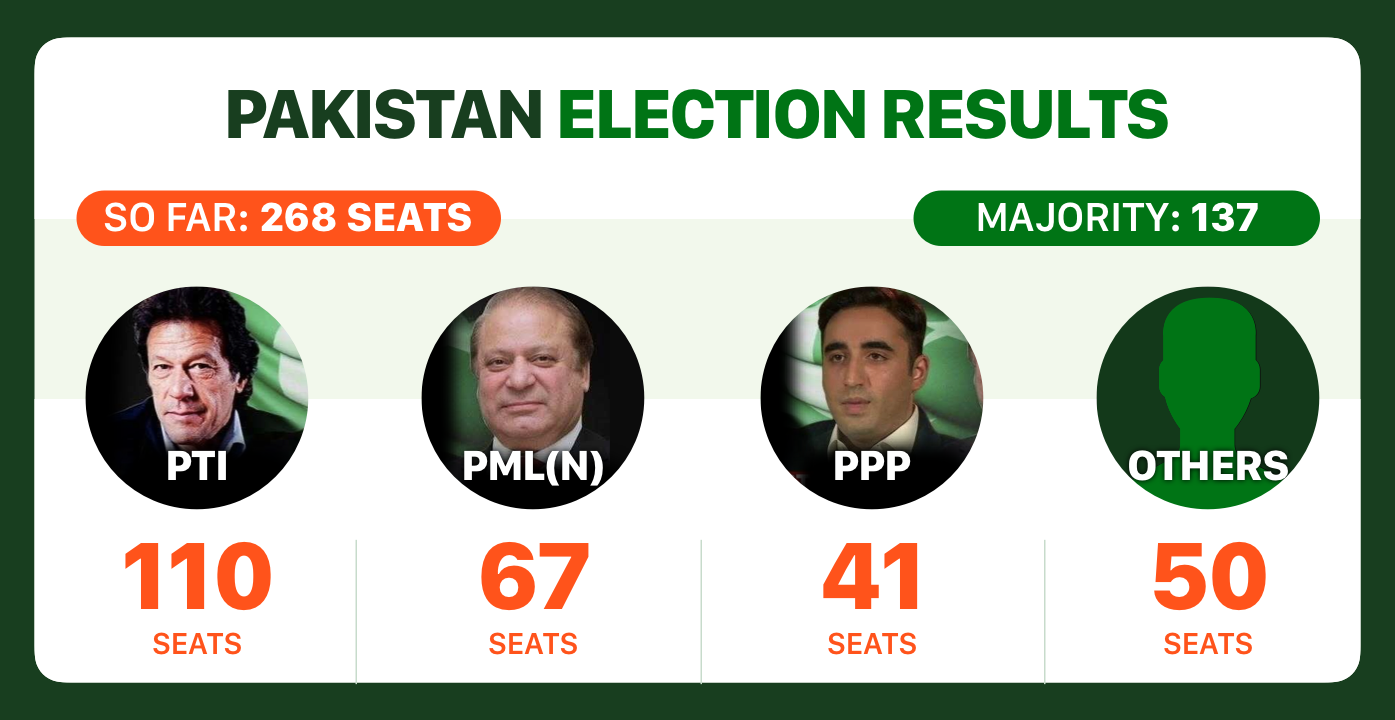
Mr Sharif's party has accused the military for weeks of attempting to throw the election to opposition figure Imran Khan, a former cricket star and anti-corruption crusader.
Shehbaz Sharif, leader of the Pakistan Muslim League-Nawaz and brother of the ousted prime minister, early on Thursday rejected the counting process as results were still trickling out and no winner had been declared but projections showed a strong lead for Khan.
"We reject this result," Shehbaz Sharif said.
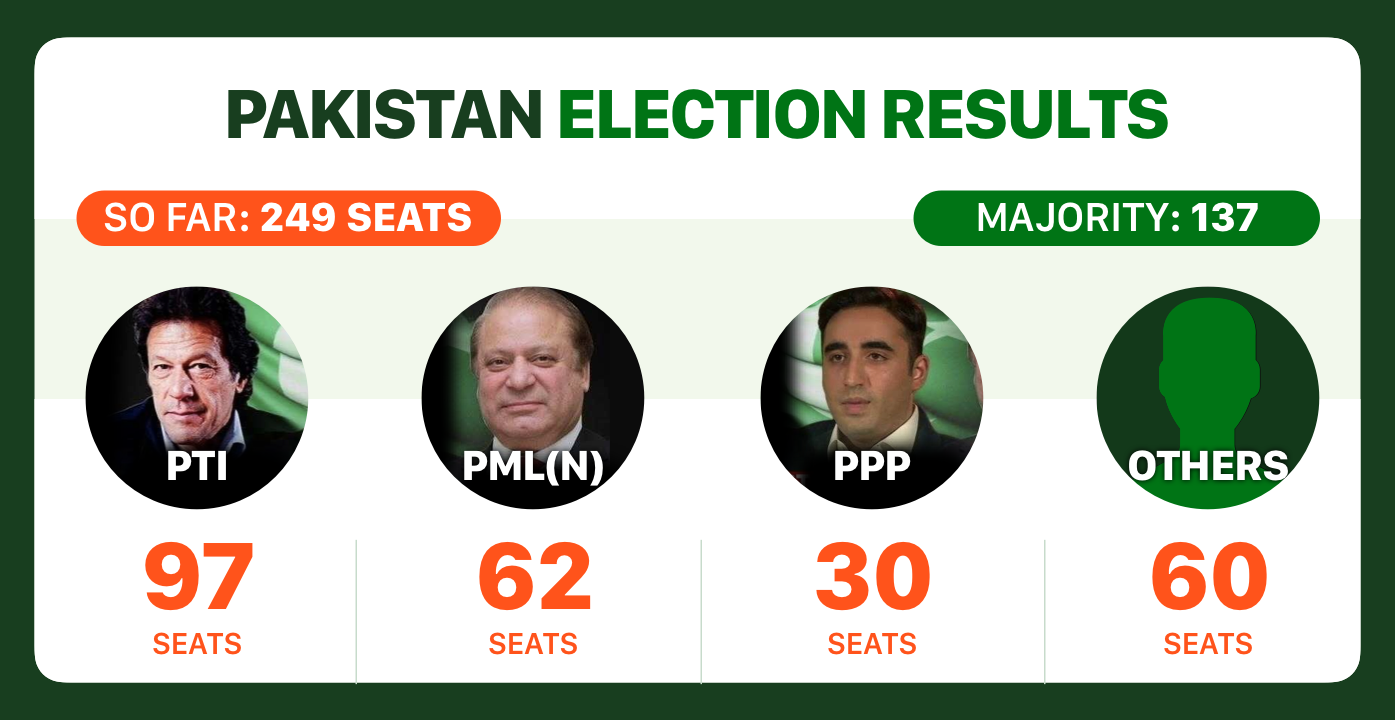
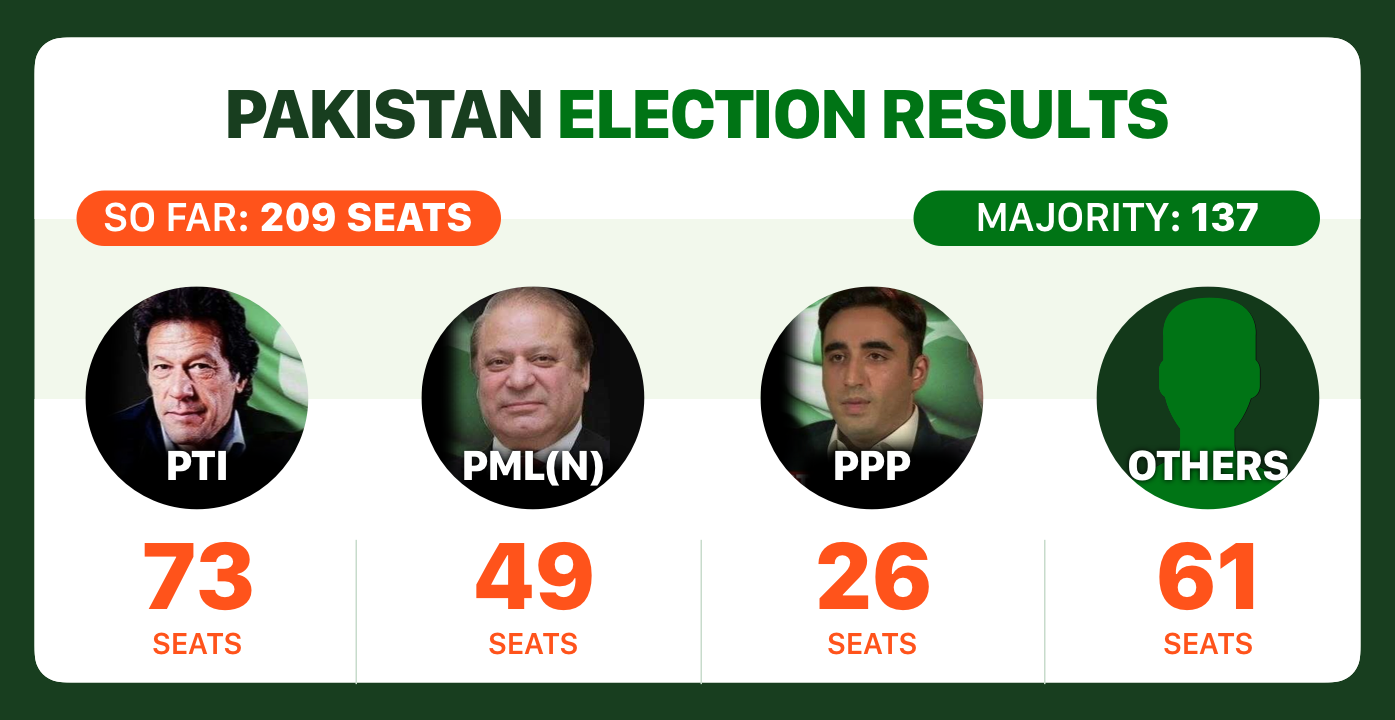
.@ImranKhanPTI's Pakistan Tehreek-e-Insaf (PTI) ahead as votes are counted in Pakistan's high-stakes polls.
- NDTV (@ndtv) July 25, 2018
Follow LIVE updates on #ElectionResults: https://t.co/tpv56ZkDD0
Read more about #PakistanElections2018 here: https://t.co/ebqlODGwDQ pic.twitter.com/hX06PynzgB
Pakistan's election commission today rejected a plea by major political parties to extend the polling time by an hour, amid reports of slow voting in many constituencies, according to a media report. The voting closed at 6:00 pm as scheduled.
The request to extend the voting time was initiated by former jailed prime minister Nawaz Sharif's party Pakistan Muslim League-Nawaz (PML-N), which was later joined by the Awami Muslim League (AML), the Pakistan Peoples Party (PPP) and the Pakistan Tehreek-e-Insaaf (PTI).
However, after deliberations the Election Commission of Pakistan (ECP) rejected the requests for an extension of one hour. In a press release, the ECP said all those who were present at polling stations before 6:00 pm would be allowed to cast their ballots.
.@ImranKhanPTI's Pakistan Tehreek-e-Insaf (PTI) ahead as votes are counted in Pakistan elections.
- NDTV (@ndtv) July 25, 2018
Track LIVE updates on #PakistanElections2018 here: https://t.co/tpv56ZkDD0 pic.twitter.com/qWgHatnSae
Thank you fellow Pakistanis. World has seen your love & respect for Pak Armed Forces & LEAs today. U hv rejected all kinds of malicious propaganda. We are strong because we have your unflinching support. Our lives are dedicated to Pakistan and its People.
- Maj Gen Asif Ghafoor (@OfficialDGISPR) July 25, 2018
🇵🇰Pakistan wins again! pic.twitter.com/MGbujoGjZk
Mother of Nawaz Sharif and Shehbaz Sharif cast her vote in Lahore#SherAaRahaHai pic.twitter.com/autB60ghJI
- PML(N) (@pmln_org) July 25, 2018
The biggest threat to Pakistan's present and future is extremism. I ask for your support in eradicating this menace from our society. Together, we can fight extremism and create a peaceful, progressive and prosperous Pakistan https://t.co/b1Mp5KGsUh
-BilawalBhuttoZardari (@BBhuttoZardari) July 19, 2018
مسلم لیگ ن کا الیکشن کمشن سے پولنگ کا ٹائم ایک گھنٹہ بڑھانے کا مطالبہ pic.twitter.com/fMcr7LlMXs
- PML(N) (@pmln_org) July 25, 2018
The beauty of democracy, exercising power of the ballot, it was a moving moment to see my esteemed mother going all the way to cast her vote in a wheel-chair. Her prayers are a source of strength to all of us in the family, particularly in these trying times ... pic.twitter.com/ugzIi6lQuv
- Shehbaz Sharif (@CMShehbaz) July 25, 2018
She has inspired all the family by showing so much grace & dignity under pressure! https://t.co/46dK4aP73E
-Shehbaz Sharif (@CMShehbaz) July 25, 2018
The Election Commission of Pakistan stated that the media discussions pertaining to Pakistan Tehreek-i-Insaf (PTI) chief Imran Khan & Pakistan Muslim League-Nawaz (PML-N) president Shehbaz Sharif were a violation of ECP code of conduct
-ANI Digital (@ani_digital) July 25, 2018
Read @ANI Story | https://t.co/ZozbyVINRi pic.twitter.com/RzgunivRQn
The leading among them are Mumbai-terror attack mastermind Hafiz Saeed-led banned Jamaat-ud Dawa's candidates who are fighting with an aim to make Pakistan a "citadel of Islam." Saeed's son and son-in-law are contesting the elections.
In the run up to the elections, the country witnessed a series of deadly attacks targeting candidates and campaign rallies, including one that killed 151 people in Balochistan province.
Hafiz Saeed is a terrorist. Pakistan's democracy is in danger because of these kind of people: Union Minister Hansraj Ahir on Hafiz Saeed seen casting vote in #PakistanElections2018 pic.twitter.com/bFKh68ra6Q
- ANI (@ANI) July 25, 2018
Some voters at a poll station in Lahore say Army isn't allowing entry. Women say 'They're saying there are many women inside&we won't be let in'; voters also say 'They're saying there are 2 booths inside so they won't allow those who are allotted 3rd booth' #PakistanElections2018 pic.twitter.com/oMdRskdUMh
- ANI (@ANI) July 25, 2018
At least 28 people were killed and 35 injured in the suicide blast in Quetta on election day.
ISIS confirmed that the attack was carried out by one of its suicide bombers, but did not provide further detail or evidence for its claim.
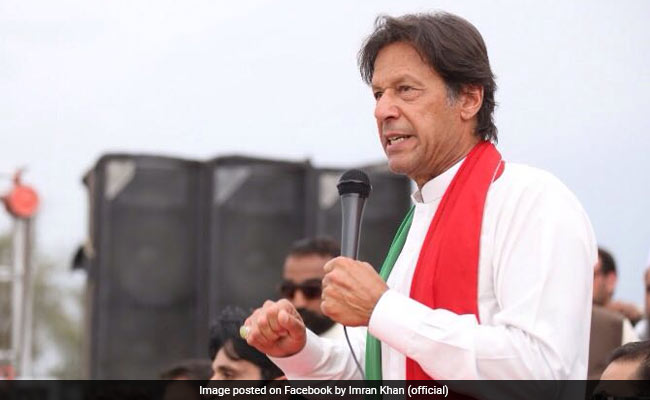
The attack has not been claimed by any terror group so far.
Balochistan, which has been under Pakistan's forceful occupation since March 1948, is the poorest and most restive region in its control. For decades Balochistan has seen a separatist movement trying to get freedom from Pakistan's forceful occupation.
The region was hit by several bombings during the brief but acrimonious election campaign -- including a devastating blast claimed by the Islamic State group which killed 153 people this month, and was Pakistan's deadliest ever suicide attack.
An earlier attack in Balochistan left one policeman dead and three wounded when a hand grenade was thrown at a polling station in the village of Koshk, in Khuzdar district.
Pakistan's military has stationed over 370,000 personnel across Pakistan to ensure security for the election, bolstered by an additional 450,000 police.
(With inputs from AFP)
Condemnable terrorist attack in Quetta by enemies of Pak seeking to disrupt our democratic process. Saddened by the loss of innocent lives. Pakistanis must defeat the terrorists' design by coming out in strength to cast their vote.
-Imran Khan (@ImranKhanPTI) July 25, 2018
Heart broken to learn of martyrdom of innocent people including police officials & injuries sustained by others in a terrorist attack in Quetta at a time when the people are exercising their democratic right of vote. My profound condolences to the bereaved families.
-Shehbaz Sharif (@CMShehbaz) July 25, 2018
Security in Pakistan has been heightened because of the general elections. Around eight lakh law enforcement and army personnel have been deployed across the country to ensure safe polling."
Pakistan's next government will face myriad challenges, from unsustainable population growth to simmering extremism, all complicated by the decades-long tussle between civilian and military leadership. No matter who is voted into office after today's polls, the new rulers will have to make hard choices, and quickly.
Here is a rundown of the biggest hurdles Pakistan is facing:
- Terrorism -
Pakistan has been battling terrorism which has originated from its own soil. Over the years, it has become a victim of its own creation. While terror originating from Pakistan is a massive threat to the rest of the world, security within the country has improved in recent times.
Analysts, however, have long warned that Pakistan is not tackling the root causes of extremism, and terrorists can still carry out attacks at will.
That includes during this election season, with a string of bombings at political events killing more than 180 people, including the second-deadliest terror attack in Pakistan's history.
Analysts have warned that terrorists may be regrouping and seeking to reassert themselves after years of setbacks.
- Economy -
Pakistan's next government faces growing fears of a balance of payments crisis, with speculation mounting it will have to seek its second bailout in five years from the International Monetary Fund.
The central bank is burning through foreign exchange reserves and devaluing the Pakistani rupee, including another five-percent dive this month, in a bid to bridge a widening trade deficit.
Pakistan, which has long relied heavily on imports, increased its procurement of materials to help build a string of Chinese-backed infrastructure projects under a multi-billion-dollar investment package with Beijing.
The terms of the projects are opaque, leading to fears about Islamabad's ability to pay for them.
The economy has also been stung by higher oil prices.
Meanwhile, meagre exports such as textiles have taken a hit from cheaper products by regional competitors, including China, while foreign remittances -- a major contributor to the economy -- have also slowed.
The winner of the election will have "limited time" to act, Fitch ratings agency warned earlier this month.
- Population growth -
Conservative Pakistan, with its limited family planning, has one of the highest birth rates in Asia at around three children per woman, according to the World Bank and government figures.
That has led to a fivefold increase of the population since 1960, now touching 207 million, draft results from last year's census show.
The boom is negating hard-won economic and social progress in the developing country, experts have warned.
To add to the problem, discussing contraception in public is taboo in Pakistan.
Analysts say unless more is done to slow growth, the country's natural resources -- particularly drinking water -- will not be enough to support the population.
- Water shortages -
Pakistan is on the verge of an ecological disaster if authorities do not urgently address looming water shortages, experts say.
Official estimates show that by 2025 the country will be facing an "absolute scarcity" of water, with less than 500 cubic metres available per person -- just one-third of the water available in parched Somalia, according to the UN.
Pakistan has just three major water storage basins, compared with more than a thousand in South Africa or Canada. As such, any surplus water is quickly lost.
Political initiative will be essential to building infrastructure to reverse the course of the impending crisis. There is also little in the way of public education on water conservation.
- Civil-military relations -
Pakistan has spent roughly half its nearly 70-year history under military rule, and the imbalance of power in between civilian governments and the armed forces has long been seen as an impediment to democracy and progress.
Hope surged in 2013 as the country saw its first-ever transition of power from one democratically-elected government to another.
But since then, experts have warned of a "creeping coup", fuelled by tensions between the generals and the government of three-time premier Nawaz Sharif, largely attributed to his desire to assert civilian supremacy and seek warmer relations with India.
Nawaz Sharif, ousted in 2017 and arrested for corruption earlier this month, says he and his party are being targeted by the military.
Activists and several prominent journalists have also accused the military of trying to install a pliant civilian government through pressure on politicians and the media. It denies the allegations.
The next government will be tasked with meeting the country's challenges without upsetting this delicate balance of power.
(Courtesy: AFP)
The Pakistan election on Wednesday comes after a brief but acrimonious campaign, complicated by a string of attacks which have prompted security fears. The 2018 poll is considered a vital step for Pakistan, and represents only the second democratic transition in a country ruled by the military for roughly half its history.
Here is a look at the election's main players:
- Nawaz Sharif -
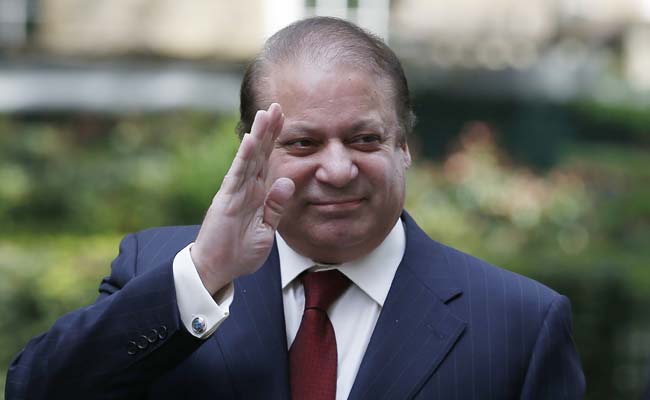
His woes reached their peak earlier this month when he was sentenced in absentia to 10 years in prison. Mr Sharif spectacularly returned to Pakistan from London a week later and was arrested.
Analysts say he has returned to fight for his political life to boost his Pakistan Muslim League-Nawaz (PML-N) party's stumbling campaign.
Seen as a combative and tenacious figure, Mr Sharif claims he is being targeted by the military -- with which he was once close.
The dispute is largely attributed to his desires to shift power to the civilian government and seek warmer diplomatic relations with India.
- Pak Army -
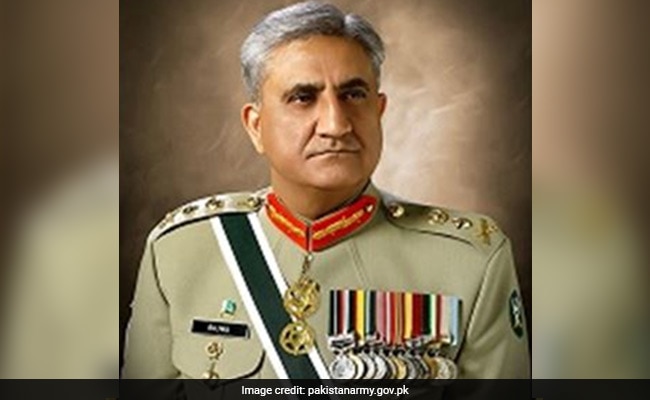
It has been broadly accused by the media, analysts, activists and politicians of what one think tank called a "silent coup" against the PML-N, and in favour of opposition stalwart Imran Khan.
Several cases of kidnappings, threats and pressure against the media and political activists have been reported, and diplomats have voiced concern over censorship allegations ahead of the polls.
The army denies the claims, saying it has "no direct role" in the election.
- Imran Khan -
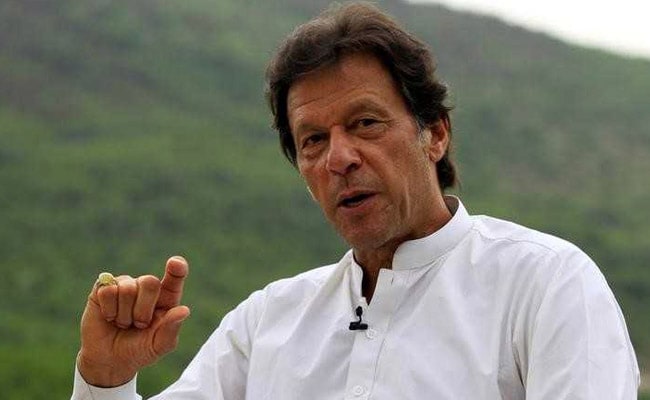
Known mainly in the West as a talented sportsman and infamous playboy, he presents a significantly more conservative and devout face to Muslim-majority Pakistan.
His Pakistan Tehreek-e-Insaf (PTI) party, founded in 1996, governed northwestern Khyber-Pakhtunkhwa province for five years but had to settle for a handful of seats nationally after the 2013 election.
The fall of Nawaz Sharif and the PML-N's floundering campaign represents Imran Khan's best chance yet to become prime minister, even if an outright majority remains uncertain.
Critics consider him unfit for office. Some call him "Taliban Khan" because of his repeated calls for talks with violent terror groups. He has also been criticised for pandering to Islamist hardliners over blasphemy.
Others openly accuse him of having links to the Pak army and ISI.
- Shahbaz Sharif -
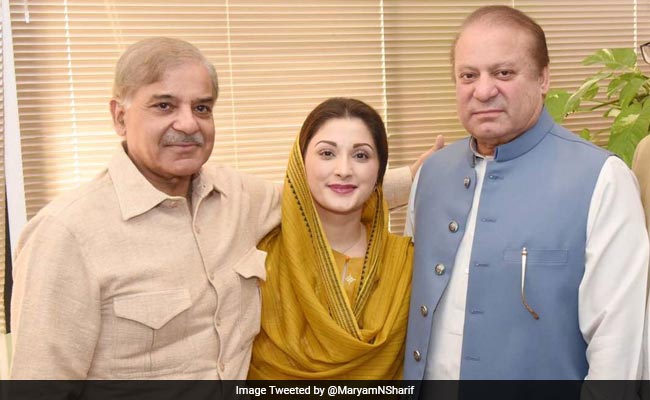
His quieter style has been overshadowed by Nawaz Sharif's loud quarrel with the military. But he occupies a key position in Pakistani politics, having spent more than 10 years as chief minister of Punjab, home to more than half of the country's population of 207 million.
Shahbaz Sharif, also an influential businessman, is reputedly less stubborn when it comes to the military, and therefore more acceptable to the generals than Nawaz.
There has long been speculation that the two brothers have clashed over their political differences, but they have never corroborated the claims.
- Bilawal Bhutto-Zardari -
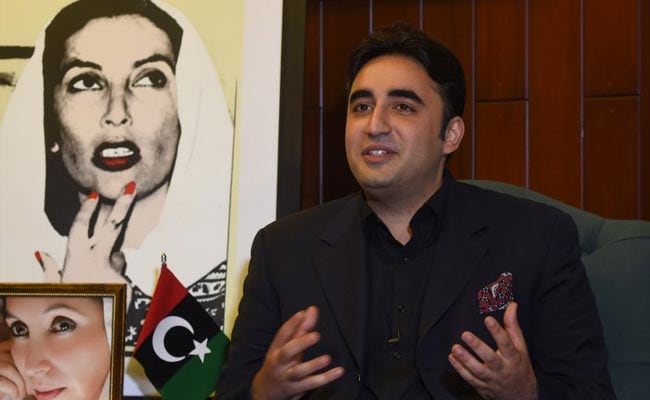
At 29, Bhutto-Zardari has little experience and the chance of election victory for his family's Pakistan Peoples Party is deemed almost nil -- though he could become kingmaker in a coalition if the PML-N or the PTI fail to win an outright majority.
The PPP once dominated Pakistani politics but is now in decline, facing a strong challenge even in its strongholds in southern Sindh province.
Bilawal's father Asif Ali Zardari, nicknamed "Mr 10 percent" by many in Pakistan because of numerous accusations of corruption, has previously been president of Pakistan.
There is speculation Asif, believed to be the main decision-maker in the PPP, could seek the post again -- or demand other concessions -- in any coalition deal.
Nawaz Sharif's brother Shahbaz is leading the party's campaign for the Pak polls.
Nawaz Sharif, known as the the 'Sher' or tiger of Pakistan's Punjab province, banks heavily on supporters from the region. His party symbol too, is the tiger. Known to have a very large support base in Pakistan's Punjab, the votes Mr Sharif's party gets from this region will more-or-less determine chances for his party's return to power.
It is widely believed in Pakistan, that he or she who wins most seats from Punjab (Pakistan), wins the general election.
Nawaz Sharif was recently ousted as the prime minister of Pakistan after he was sentenced to 10 years in prison by Pakistan's Supreme Court in a corruption and disproportionate assets case. His daughter Maryam too, has been sentenced to seven years in prison. Father and daughter are currently in jail, while Mr Sharif's wife Kulsoom is battling for her life and said to be in "critical" condition in a hospital in London. The Supreme Court has barred Nawaz Sharif from being able to contest the election or hold any political office.
Nawaz Sharif is seen by the Pak Army as someone who challenges their authority in Pakistan as he believes in the rule of a civilian government - a view that doesn't digest well with Pakistan's powerful generals, who do not want to part with power.
Imran Khan is campaigning on populist promises to build a "New Pakistan", vowing to eradicate corruption, clean up the environment and construct an "Islamic welfare" state. But his campaign has been dogged by widespread accusations that he is benefitting from the support of the country's powerful security establishment, with the media, activists and think tanks decrying a "silent coup" by Pakistan's generals.
Pakistan's military, which has ruled the country for more than half its history since its formation in 1947, has rejected the accusations, saying it has no "direct role" in the electoral process. However, Pakistan's election authorities have granted Pak Army officers broad powers inside polling centres that have further stirred fears of possible manipulation and election rigging.
Imran Khan, who has been known for his playboy image, has also raised eyebrows in recent weeks as he has increasingly catered to hardline religious groups, sparking fears a win for PTI could embolden Islamist extremists.

